“Donald Trump Set to Face Charges in indictment at arraignment in New York Court – What’s Next for the Former President?”-UPSC
The former U.S. President Donald Trump, is facing indictment and an arraignment in a New York court over charges related to a payment made on his behalf to an adult film star.
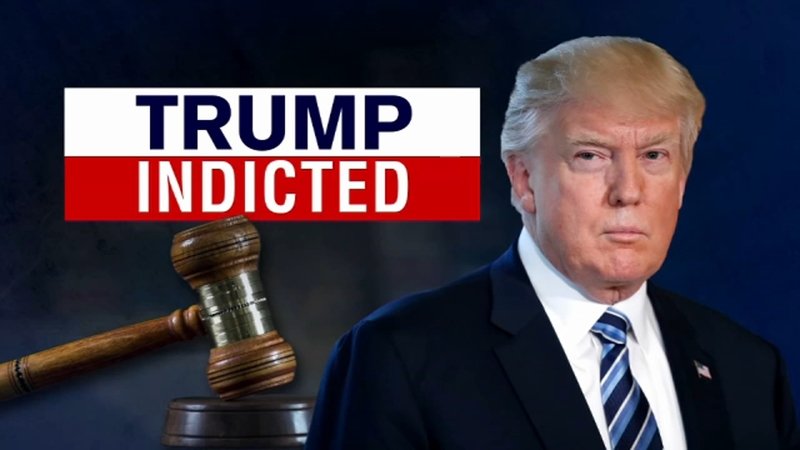
Former President Donald Trump is set to appear in a New York court for his arraignment after being indicted on criminal charges. The charges relate to a payment made on Trump’s behalf to an adult film star in exchange for her silence about an alleged affair in 2016, which Trump has denied. He is the first former president in U.S. history to be charged with a crime, which could have serious implications for his ongoing bid for the White House. Trump has denied any wrongdoing and denounced the investigation as a “witch hunt.”
Trump traveled from his home in Florida to New York, where he stayed overnight at Trump Tower ahead of his surrender and court appearance. He is expected to turn himself in to police for processing at the Manhattan Criminal Courthouse, where he will be booked and taken into custody. After being processed, he will appear in front of a judge at an arraignment hearing.
The charges included in the indictment will be read aloud in court at Trump’s arraignment, at which point the indictment will be unsealed. Trump will plead not guilty to the charges, his attorneys have said. No video recording will be allowed in the courtroom, but a handful of photographers will be briefly permitted to take pictures.
The area around the courthouse has been heavily secured, with barricades and dozens of police officers blocking access to the building. The media and demonstrators have gathered in a nearby park, awaiting Trump’s arrival.
The case has already had significant political and financial implications. Trump’s team has sought to capitalize on the case, and his campaign has reportedly raised over $8 million since news of the indictment broke. However, the charges could also damage Trump’s chances of winning back the White House in the future.
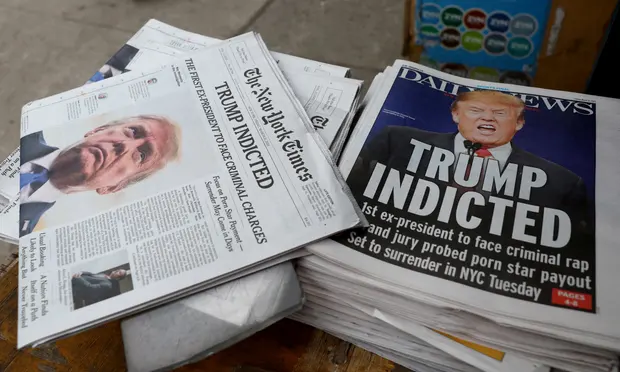
Source – nbcnews
“Behind Bars or Free to Go? What’s Next After Trump’s Arraignment and Arrest”
After Trump’s arraignment, the prosecution must turn over all evidence gathered to the defense team within 15 days. Trump’s defense team plans to file motions to get the case dismissed before reaching a jury, with the judge having the discretion to grant more time. Trump’s team may argue for a motion to transfer the case out of Manhattan due to pretrial publicity, but it’s unlikely to be granted. Other motions may involve the statute of limitations or attacks on the sufficiency of evidence. The speedy trial rule in New York states that prosecutors must be ready to try a felony case within six months, but the case is likely to take much longer to reach trial, with former prosecutors predicting it could take over a year depending on the number of motions filed.
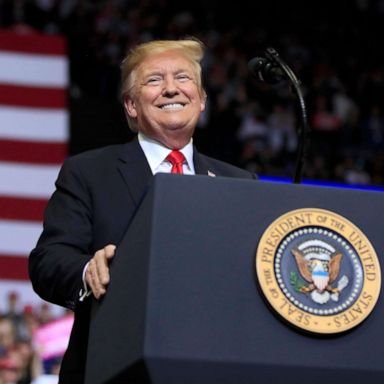
What is Indictment?
Indictment is a formal accusation or charge of a serious crime, typically a felony, made by a grand jury after examining the evidence presented by a prosecutor. It is a legal process that begins after an investigation into criminal activity has been completed and the prosecutor believes that there is enough evidence to bring a case to trial. The indictment lays out the specific charges against the defendant and serves as the basis for the trial.
Difference between Indictment and Impeachment.
| Indictment | Impeachment |
|---|---|
| Legal process | Political process |
| Prosecutors present evidence to a grand jury to obtain a formal charge | The House of Representatives impeaches the president or other federal officials based on charges of “high crimes and misdemeanors” |
| Process takes place in a court of law | Process takes place in Congress |
| Purpose is to formally charge someone with a crime | Purpose is to investigate and potentially remove an elected official from office |
| Outcome could lead to a trial and potentially a criminal conviction | Outcome could lead to a trial in the Senate and potential removal from office |
| Generally involves accusations of violating criminal laws | Generally involves accusations of violating the public trust or abuse of power |
| Requires a majority vote by a grand jury to issue an indictment | Requires a majority vote by the House of Representatives to impeach |
| The accused has the right to a trial by jury and the right to legal representation | The accused has the right to legal representation and the right to present a defense in the Senate trial |
Status of Indictment in India.
In India, an indictment is known as a “charge sheet” or “final report.” It is a legal document that outlines the charges against a person accused of a crime. The charge sheet is typically filed by the police after they have completed their investigation and gathered evidence.
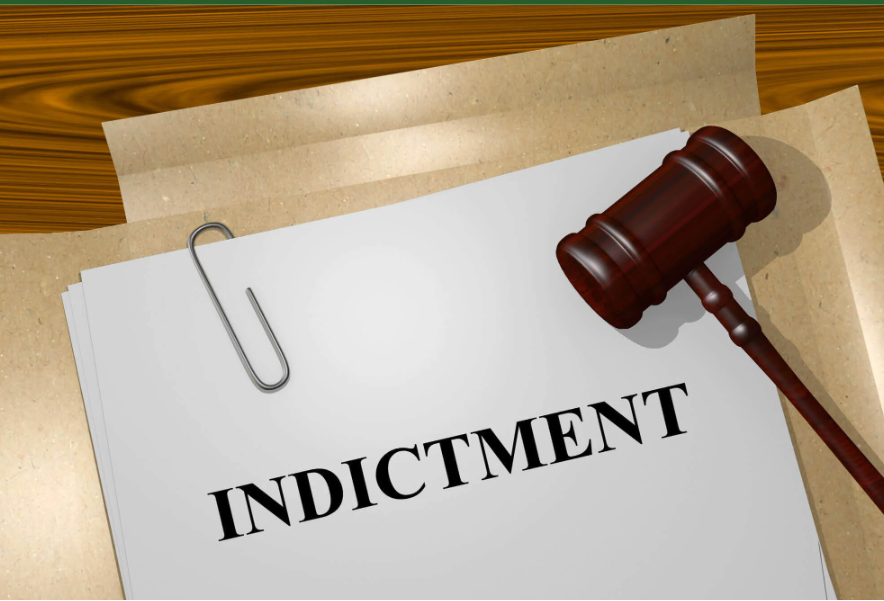
Once the charge sheet is filed in court, the accused person has the opportunity to defend themselves against the charges. They can hire a lawyer and argue their case in court. The prosecution must prove their case beyond a reasonable doubt, and the accused is presumed innocent until proven guilty.
In India, the process of indictment is governed by the Code of Criminal Procedure, which outlines the procedures that must be followed by the police and the courts. The Code also includes provisions for the protection of the rights of the accused, such as the right to a fair trial and the right to be informed of the charges against them.
Overall, the process of indictment in India is similar to that in other common law countries. It is an important step in the criminal justice process and plays a crucial role in ensuring that those accused of crimes are held accountable for their actions.
Read More – Economics Current Affairs for UPSC 2023 I PART -4
Status of Impeachment in India.
In India, impeachment is the process by which a high-ranking public official, including the President, Vice President, Governors of States, and Judges of the Supreme Court and High Courts can be removed from office. The Constitution of India provides for impeachment proceedings against the President, the Vice President, Judges of the Supreme Court, and Judges of the High Courts.
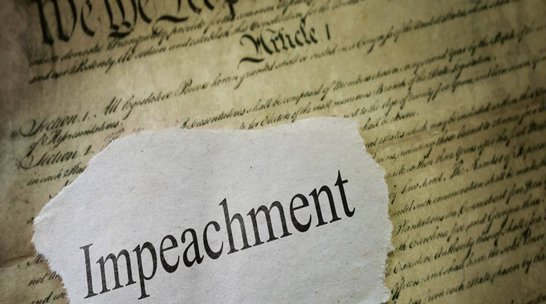
The process of impeachment in India is different from that of the United States. In India, impeachment proceedings can only be initiated in the Parliament, and not in any other court or tribunal. The procedure for impeachment is laid down in Article 61 of the Indian Constitution for the President and in Article 124 for Judges of the Supreme Court and High Courts.
In the case of the President, impeachment proceedings can be initiated by a notice signed by at least 100 members of the Lok Sabha or the Rajya Sabha. The notice must contain the charges against the President, and it must be presented to the Speaker or the Chairman of the Rajya Sabha. If the notice is found to be in order, then a special committee is formed to investigate the charges. The committee submits its report to the Parliament, and if the Parliament finds the charges to be true, then the President can be impeached.
In the case of Judges, impeachment proceedings can be initiated by a notice signed by at least 100 members of the Lok Sabha or 50 members of the Rajya Sabha. The notice must contain the charges against the Judge, and it must be presented to the Speaker or the Chairman of the Rajya Sabha. If the notice is found to be in order, then a special committee is formed to investigate the charges. The committee submits its report to the Parliament, and if the Parliament finds the charges to be true, then the Judge can be impeached.
Impeachment is a serious and rare process in India, and it has been used only once in the history of the country. In 1975, Justice V. Ramaswami, a Judge of the Supreme Court, faced impeachment proceedings in the Parliament. However, he was not impeached as the motion failed to get the required two-thirds majority in both Houses of Parliament.

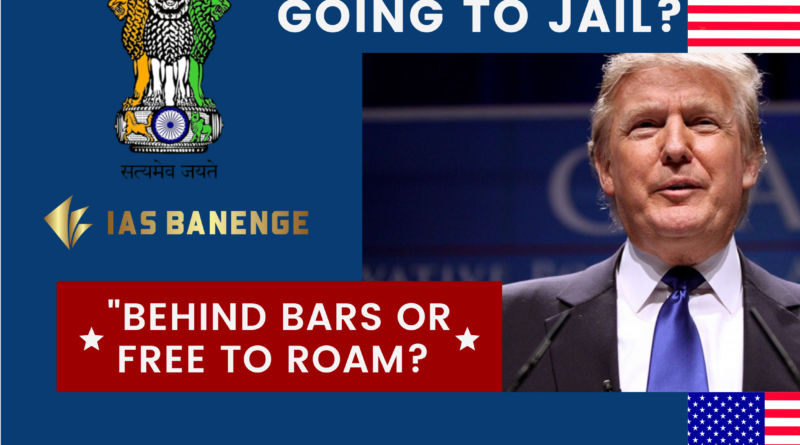



Pingback: "Finland Joins NATO: Doubling Border with Russia and Strengthening Global Security" - Ias Banenge